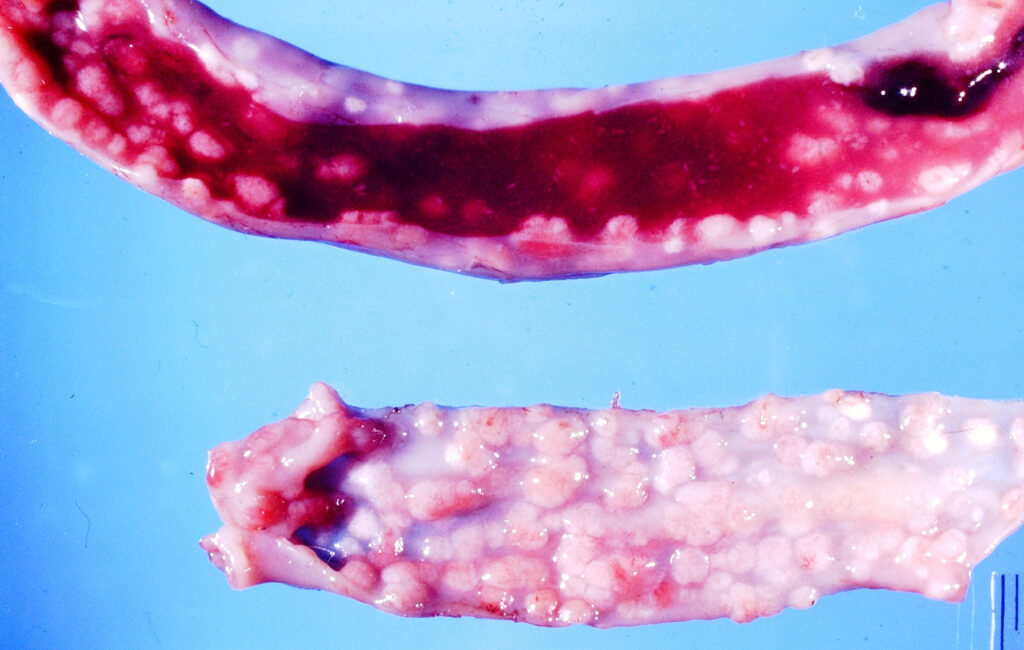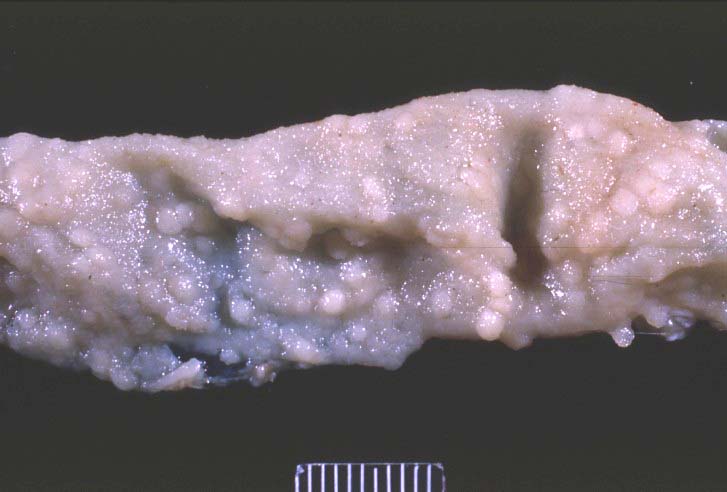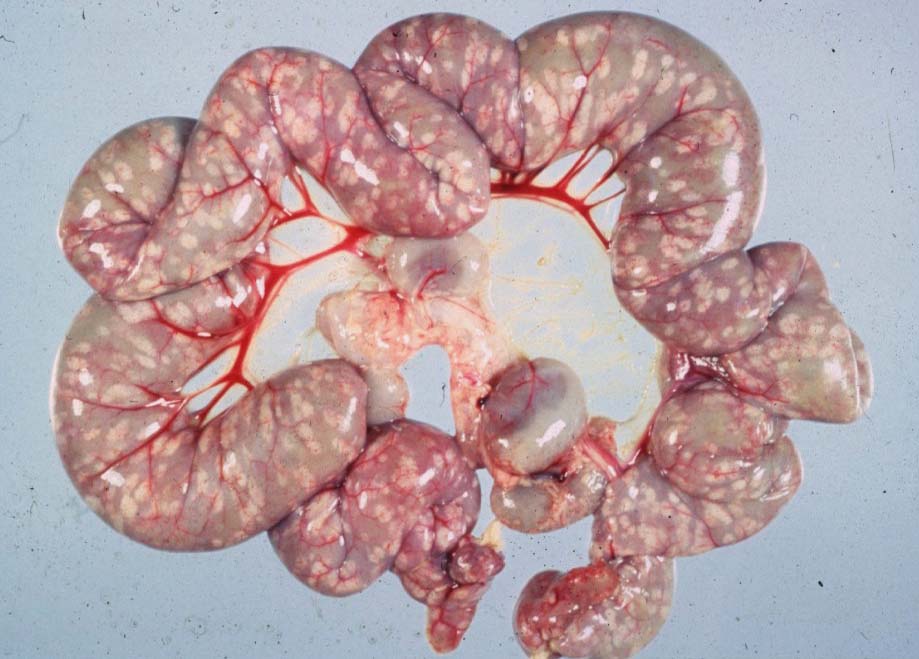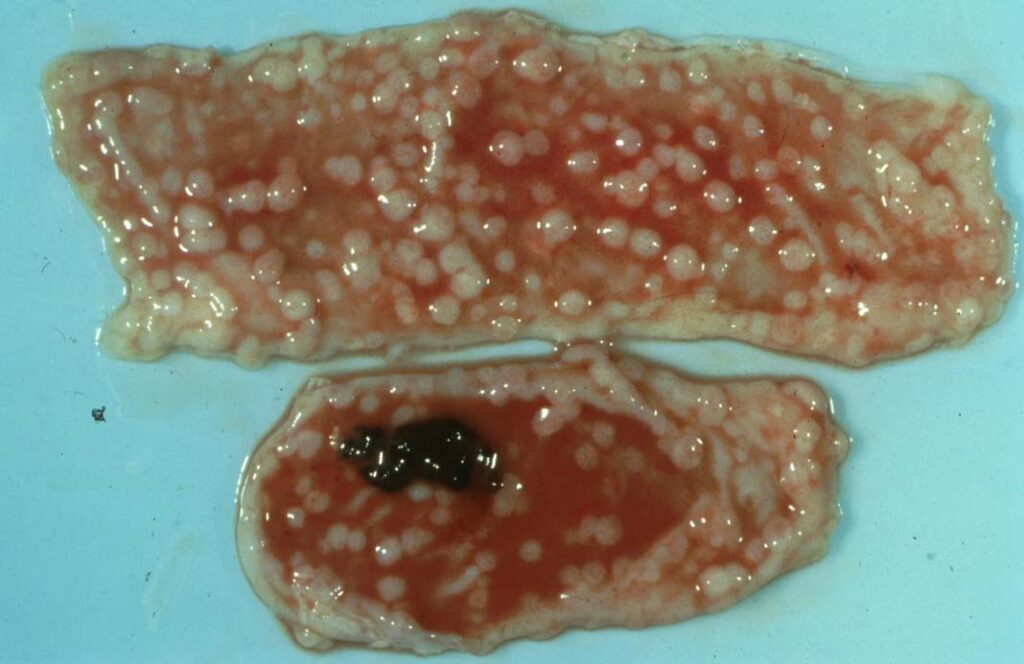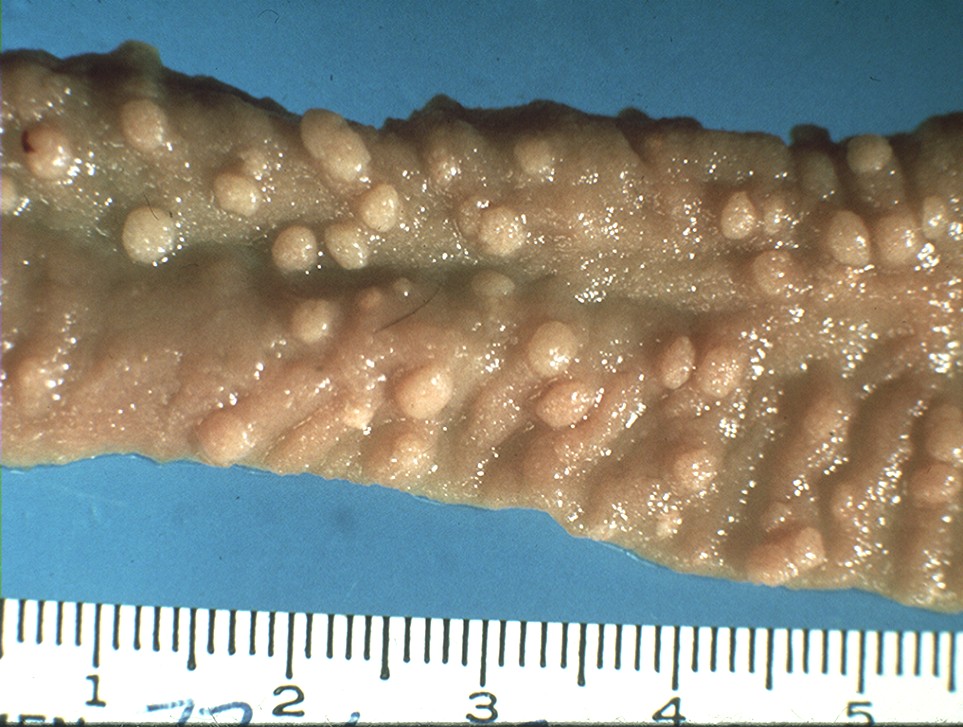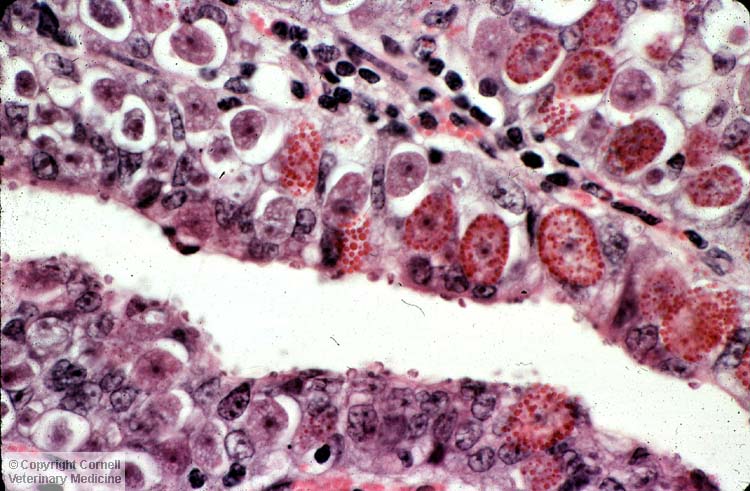Today’s path rounds are on 𝐢𝐧𝐭𝐞𝐬𝐭𝐢𝐧𝐚𝐥 𝐜𝐨𝐜𝐜𝐢𝐝𝐢𝐨𝐬𝐢𝐬!
𝐖𝐡𝐚𝐭 𝐢𝐬 𝐢𝐭?
𝐂𝐨𝐜𝐜𝐢𝐝𝐢𝐚𝐧𝐬 are a type of protozoan that live within cells. The most common coccidians we think about are 𝐄𝐢𝐦𝐞𝐫𝐢𝐚 and 𝐈𝐬𝐨𝐬𝐩𝐨𝐫𝐚 in our production animal species. These parasites have a 𝐭𝐫𝐨𝐩𝐢𝐬𝐦 for intestinal cells, meaning they specifically seek out that location to live!
𝐖𝐡𝐨 𝐠𝐞𝐭𝐬 𝐢𝐭?
Intestinal coccidiosis affects numerous species, but today we are going to talk about sheep and goats specifically.
𝐖𝐡𝐚𝐭 𝐜𝐚𝐮𝐬𝐞𝐬 𝐢𝐭?
There are about a dozen species of coccidia found in sheep an goats, with most of them belonging to the Eimeria family.
The most interesting member of this family is 𝐄𝐢𝐦𝐞𝐫𝐢𝐚 𝐚𝐫𝐥𝐨𝐢𝐧𝐠𝐢, because it causes a fairly unique lesion in the intestine! This particular coccidia likes to develop its 𝐬𝐜𝐡𝐢𝐳𝐨𝐧𝐭𝐬, the form of the protozoa that can spread to infect other cells, within the 𝐥𝐚𝐜𝐭𝐞𝐚𝐥𝐬 (lymph vessels) of the intestine. This large accumulation of protozoans causes nodules to form along the intestine, which is sometimes referred to as 𝐩𝐨𝐥𝐲𝐩𝐨𝐢𝐝𝐨𝐬𝐢𝐬. Neat!
𝐖𝐡𝐲 𝐢𝐬 𝐭𝐡𝐢𝐬 𝐚 𝐩𝐫𝐨𝐛𝐥𝐞𝐦?
Coccidosis affects young lambs and kids, causing severe diarrhea that may contain blood or mucus. Typically, these young animals are very sick, which can cause them to grow poorly or suffer severe weight loss. Some may die from the infection as well. Both of these factors combined make coccidiosis have significant impacts on the economics of sheep and goat production.
𝐇𝐨𝐰 𝐢𝐬 𝐢𝐭 𝐝𝐢𝐚𝐠𝐧𝐨𝐬𝐞𝐝?
The best method for diagnosis in live animals is a 𝐟𝐞𝐜𝐚𝐥 𝐜𝐨𝐮𝐧𝐭 demonstrating large numbers of the egg stage of the protozoan. If an animal dies, the characteristic nodular appearance of the intestine is also a good clue!
𝐇𝐨𝐰 𝐢𝐬 𝐢𝐭 𝐭𝐫𝐞𝐚𝐭𝐞𝐝? 𝐇𝐨𝐰 𝐢𝐬 𝐢𝐭 𝐩𝐫𝐞𝐯𝐞𝐧𝐭𝐞𝐝?
Often treatment of clinically affected animals is not very effective, but can be done using 𝐜𝐨𝐜𝐜𝐢𝐝𝐢𝐨𝐬𝐭𝐚𝐭 medications. These medications prevent replication of the coccidian, hopefully allowing the animal time to recover from their disease. Prevention can be done with 𝐩𝐫𝐨𝐩𝐡𝐲𝐥𝐚𝐜𝐭𝐢𝐜 (given before disease happens) coccidiostats, and by keeping the animals in clean, frequently rotated areas.
𝐏𝐡𝐨𝐭𝐨𝐬
1-5) Examples of intestinal coccidiosis in goats!
6) What coccidiosis looks like under the microscope. The cells with the dark red specks are the protozoans!
𝐒𝐨𝐮𝐫𝐜𝐞𝐬
Maxie, G. Jubb, Kennedy and Palmer’s Pathology of Domestic Animals, Volume 2. Sixth Edition.
Photos 1-6 © Noah’s Arkive contributors King, Garlick, Metro, Tyler, Dodd, Luginbuhl licensed under CC BY-SA 4.0.

